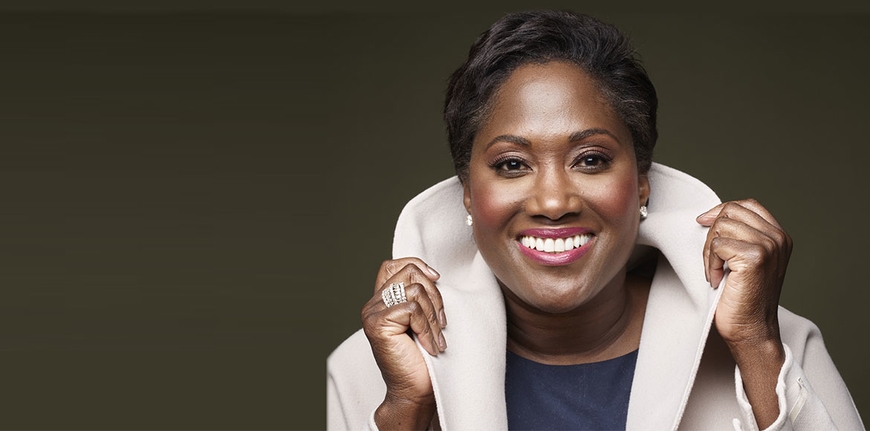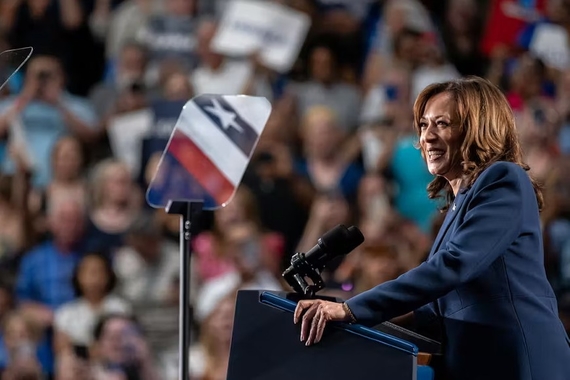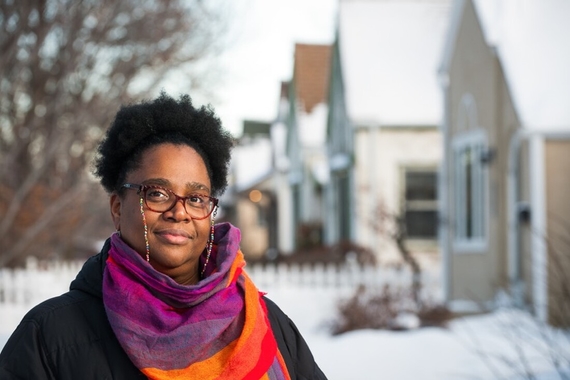Lisa Opoku leads with a love of service
In 1993, equipped with a bachelor's degree in sociology, Lisa Opoku (BA ‘93, sociology) might not have believed she’d one day be the Goldman Sachs Global Engineering Chief Operating Officer. Through a splendid combination of grace, tenacity, and kindness, Lisa built a sterling career in the often hard- and keen-edged world of business.
She joined Goldman Sachs in 2004 as an attorney in the legal department and was hired in 2005 to become the chief operating officer for the Fixed Income, Currency and Commodities (FICC) Bank Loan Syndications and Trading businesses in New York and London. She was named managing director in 2006 and partner in 2012. Prior to joining Goldman, Lisa was an attorney at Richards Spears Kibbe & Orbe, where she made partner in 2004.
Earning a JD from Harvard Law School in 1996, Lisa serves as vice chairman of the board of directors for the Foundation of Orthopedics and Complex Spine, is actively involved in the Dikembe Mutombo Foundation, and a member of the Women’s Network and the Firmwide Black Network.
Among her accomplishments are the 2021 United Way's Power of Women to Make a Difference Award, Crain's 2019 Notable Women in Tech, 2017 Working Mother of the Year, Black Enterprise's "40 Rising Stars Under 40" in 2014, and Forbes' recognition of her as "20 Youngest Power Women in Africa" in 2012.
What are the most important communities in your world and how do you connect with them?
My communities are spiritual people, family, friends, colleagues, and neighbors. The advantage of social media has been the ability to connect with so many people regularly and globally. Growing up in Moundsview, Minnesota, my universe was limited to my extended Ghanaian family, classmates, Pillsbury employees, and neighbors. Our visibility into other communities was limited to what we could see on television or visit on our occasional cross-country road trips in a Ford station wagon (sitting between my sister and brother). Today, with social media, we have the opportunity to share our photos, videos, political views, creative ideas, art—and joy—with everyone in our global communities in real-time. Whether we want to admit it or not, we love to be affirmed by our communities.
What's your approach to leading?
I take the responsibility of leadership very seriously. When someone places their career in my hands, I feel a tremendous amount of responsibility to represent them and their best interests—at all times. True leaders operate in a service capacity. As a leader, the careers of your bottom performers need to be as important to manage as your top performers. It’s your responsibility to bring out the best in them or to transition them to an environment that is better for their needs. You need to lead in a manner that brings out the absolute value of everyone on your team.
What new technologies are you most excited about in your field and related areas?
NFTs—Non-fungible tokens. I love the idea that an artist could sell a piece of artwork identified by an NFT, establish provenance, and trace ownership. I would love a future where creators receive a portion of the proceeds from every single successive sale of their work for as long as they live. This is how technology can protect the arts and improve the accuracy of our historical records. NFTs and blockchain technology have revolutionary potential that is applicable across many industries. Those with liberal arts degrees can embrace this technology for the benefit of modernizing so many aspects of our professions.
About what are you most curious?
Data. I love to consume data, study patterns, extract knowledge and insights from everything I see, hear, and read. It’s very difficult to surprise me because I pay close attention to every piece of data in every form.
When it's time to get creative, what do you do to get inspired?
I love to look at artwork to inspire my creativity—especially sculpture and paintings. Art is created with so much intention. The creator communicates with you through their work forever. When I see the shapes and forms in paintings I admire the way artists can bring the beauty of humanity to the canvas. I derive so much joy from contemplation and keen observation. I really enjoy connecting with the artist. Their talent inspires your own.
Imagine you're not in your current role and have the opportunity to do anything. What would you do?
I would have loved to be a sociology professor. That was my dream job. I wanted to get a PhD in sociology and go into inner cities and study under William Julius Wilson—but my African parents were not exactly onboard with me becoming a sociologist. They didn’t really know what that meant. We could only choose professions like doctor, lawyer, CPA, or engineer. I chose lawyer when I was about five years old. It wasn’t an informed decision at the time but there is merit to “early decisions” as I ended up at Harvard Law School.
What was the most meaningful learning experience in your CLA life?
To graduate from the College of Liberal Arts in 1993, you had to be fluent in a foreign language. I chose Spanish. This requirement was such a gift. It taught me so many important lessons. The world is much larger than Ghana and America—pay attention, listen, understand and learn from cultural differences, connect beyond your immediate circle and demonstrate your respect with your fluency. This is a gift that keeps on giving. Just a few weeks ago I started refreshing my now forgotten Spanish with one of my current Goldman colleagues and her Dominican family members.
If you could tell your younger, CLA self one thing, what would it be?
As a sophomore I dated a Gopher’s football player and fellow CLA graduate named Steve Cambrice. He was from New Orleans, Louisiana. He told me that I suffered from internalized oppression, that I didn’t understand the beauty in being Black. Despite graduating summa cum laude in sociology, I couldn’t understand what he was saying at the time. It was incredibly difficult to grow up in the extreme minority, but it was even more difficult to stop seeing myself through the eyes of the majority. I would tell my CLA self, Steve is right, you are beautiful.



